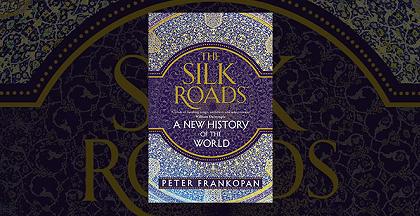Key facts about history
- Our idea of history has changed over time, and has been influenced by many things.
- The word 'history' comes from the Ancient Greek word for 'inquiry'.
- Herodotus is considered as the father of history
- Today, there are many different ways people approach and understand history
People you need to know
- Johannes Guttenberg - credited with introducing the printing press to Europe.
- Herodotus - Ancient Greek historian, considered the father of history, who lived in the fifth century BCE.
In the ancient past, what we would call ‘history’ was something created and recreated to fit a purpose: a king might invent a history of himself and his family to explain why he took the throne, or a myth might be made to explain a brutal war. Facts, or what actually happened, didn’t matter as much as the story. The past, when told like this, moved: stories changed over time to suit those telling them. Almost 2,500 years ago a Greek from Halicarnassus (Bodrum in Turkey) named Herodotus set out to change this. He was born towards the end of the Persian Wars, in which the Greeks fought the Persians (who were based in modern-day Iran, but whose empire stretched from the Aegean Sea in the west to parts of China in the east) in the great battles of Marathon, Thermopylae (where the Spartan 300 stood), and Salamis. He wanted to record the events that had happened and find out what had caused them, and so travelled around, finding information in records and talking to people. He called his work his ‘Inquiry’. In Ancient Greek, the word was ‘Historia’.
He called his work his ‘Inquiry’. In Ancient Greek, the word was ‘Historia’. Other people in the ancient world learned of his work and were inspired, and so the practice of history began. When the Romans came along, they adopted much of Greek learning,
Other people in the ancient world learned of his work and were inspired, and so the practice of history began. When the Romans came along, they adopted much of Greek learning, including history (the word for which they adopted into their Latin language, and it came to mean ‘a narrative of past events’) and the practice spread further. Roman writers such as Cicero laid down rules for the writing of history. These included that the truth should be told impartially (regardless of who it might offend); should be organised chronologically and geographically; it should provide a narrative of great events, their causes and their protagonists; and that it should be well written. Once belief in Christianity took hold across Europe, learning and knowledge became more limited and was restricted to monks and others within the Church. As all books had to be written by hand, monks would spend days writing and copying texts.
including history (the word for which they adopted into their Latin language, and it came to mean ‘a narrative of past events’) and the practice spread further. Roman writers such as Cicero laid down rules for the writing of history. These included that the truth should be told impartially (regardless of who it might offend); should be organised chronologically and geographically; it should provide a narrative of great events, their causes and their protagonists; and that it should be well written. Once belief in Christianity took hold across Europe, learning and knowledge became more limited and was restricted to monks and others within the Church. As all books had to be written by hand, monks would spend days writing and copying texts. This meant that the Church controlled the information, and decided what other people should know. History continued to be recorded and studied, but now it was within the limits of a Christian understanding of the world, and within the limits of Christian scripture, which was taken as truth.
This meant that the Church controlled the information, and decided what other people should know. History continued to be recorded and studied, but now it was within the limits of a Christian understanding of the world, and within the limits of Christian scripture, which was taken as truth. In 1440, Johannes Guttenberg introduced the printing press to Europe.
In 1440, Johannes Guttenberg introduced the printing press to Europe. Instead of relying on monks to copy books, more books could now be printed in less time. Reliance on the Church for information reduced and more information from a variety of sources became available. At the same time, interest in Classical Greece and Rome grew, and learned people looked to the ancient writers, such as Cicero, to inspire them.
Instead of relying on monks to copy books, more books could now be printed in less time. Reliance on the Church for information reduced and more information from a variety of sources became available. At the same time, interest in Classical Greece and Rome grew, and learned people looked to the ancient writers, such as Cicero, to inspire them. It was also around this time that the meaning of the word ‘history’ became what it is today: the study of the past through the written word. However, belief in the Bible as the truth was still strong, so people fit what they learned about the world and the past into the story told in the Bible.
It was also around this time that the meaning of the word ‘history’ became what it is today: the study of the past through the written word. However, belief in the Bible as the truth was still strong, so people fit what they learned about the world and the past into the story told in the Bible. This carried on until the 19th century when archaeological finds, such as dinosaurs and prehistoric humans, became too many to ignore. Scientific discoveries made the great minds of the day rethink their dependence on Christianity for understanding history, and began to look at history in new ways. One of these ways was to see it as a progression of events, a move from ‘bad’ to ‘good’ across the years. Others saw in history a time that was inspiring, to which they wanted to return. The stories told in history changed, as did their meaning, and that is the history we have been left with today.
This carried on until the 19th century when archaeological finds, such as dinosaurs and prehistoric humans, became too many to ignore. Scientific discoveries made the great minds of the day rethink their dependence on Christianity for understanding history, and began to look at history in new ways. One of these ways was to see it as a progression of events, a move from ‘bad’ to ‘good’ across the years. Others saw in history a time that was inspiring, to which they wanted to return. The stories told in history changed, as did their meaning, and that is the history we have been left with today.
Things to think about
- How has history changed over the last 3,000 years?
- What is meant by history today?
- What does the way we study history tell us about ourselves?
- What does history mean to you?
Things to do
- Read some history books written at different times to see how people's approach to history has changed.
- Try writing a historical event from different perspectives in time.


